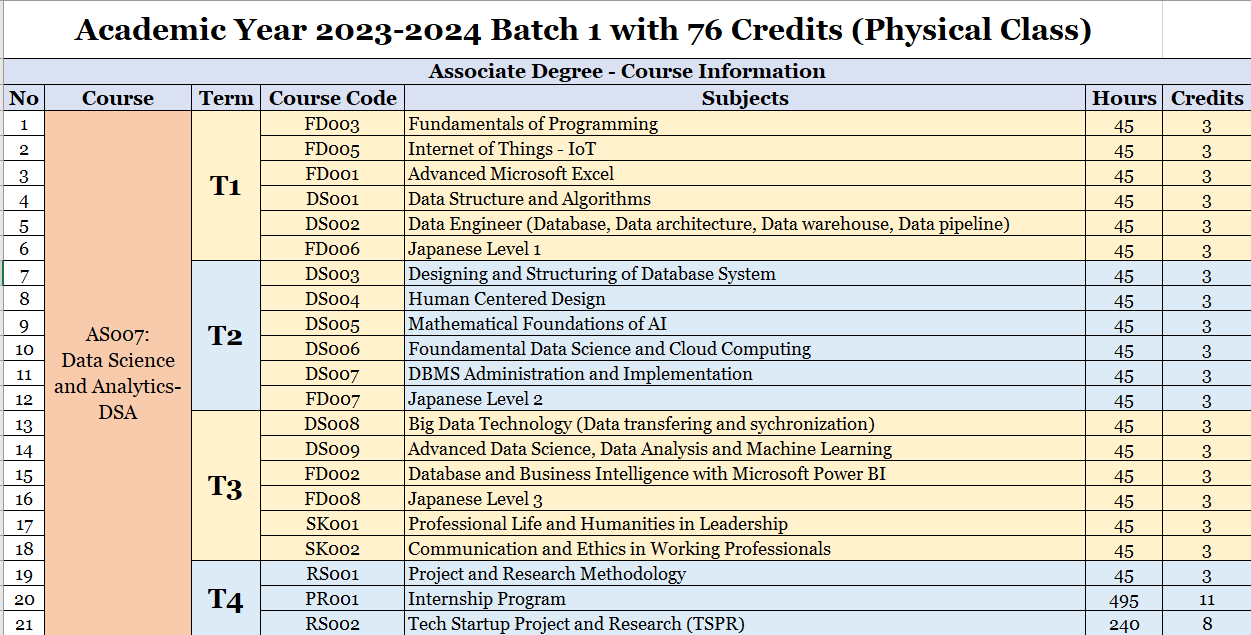Course Description
This course will teach students practical knowledge on how to develop interdisciplinary fields that combine scientific methods, processes, algorithms, and systems to extract knowledge and insight from structured and unstructured data. It involves various techniques such as data mining, machine learning, statistical analysis, and visualization to uncover patterns, trends, and correlations in large datasets. It is also providing the necessary foundations in the disciplines of mathematics, statistics, and computer science.
But which algorithm, technologies, system, and platforms should use, and how to meet specific real-world needs effectively?
It develops student knowledge and skills in some of the key tools and techniques relevant to data science. It also pays specific attention to ethical issues surrounding the manner in which data is gathered, stored, and analyzed/utilized. Currently, Data Science is a significant area of growth and potential employment in developed countries around the world especially in Cambodia as well.
Course Overview
Subject
19
Hour
1590
Credits
76
Fee and scholarship
$ 5,000.00
Note: Students be able to apply for a scholarship.
Curriculum Details

Learning Outcome
- Have a basic understanding of data science's guiding concepts and principles, including how to manipulate, analyze, and visualize data.
- Become proficient in computer languages like Python or R that are frequently used in data science.
- Become familiar with the many statistical methods and machine learning algorithms that are used to analyze and predict data.
- Develop the skills necessary to prepare, preprocess, and convert raw data into a format appropriate for analysis.
- Develop the ability to perform exploratory data analysis to find trends, patterns, and outliers in datasets.
- Become proficient in the use of statistical software and libraries for data analysis and reasoned decision-making.
- Gain knowledge about how to create prediction models for tasks like classification or regression using machine learning techniques.
- Understand the ethical considerations and best practices related to handling sensitive or confidential data.
- Build expertise using big data technologies and tools for effectively processing huge datasets.
- Develop effective communication skills to present findings and insights derived from data analysis to both technical and non-technical stakeholders.
Career Expectation
- Data Scientist
- Data Analyst
- Informatician
- Computational Scientist
- Data Engineer
- Data Researcher
- Consultant/Advisor
- Machine Learning Engineer
- Business Intelligence Analyst
Summary
Title program:
Durations:
Mode of Study:
Schedule of Study:
Associate Degree
1 year and half
Physical Class
Mon-Fri, 7:30 AM - 12:30 PM